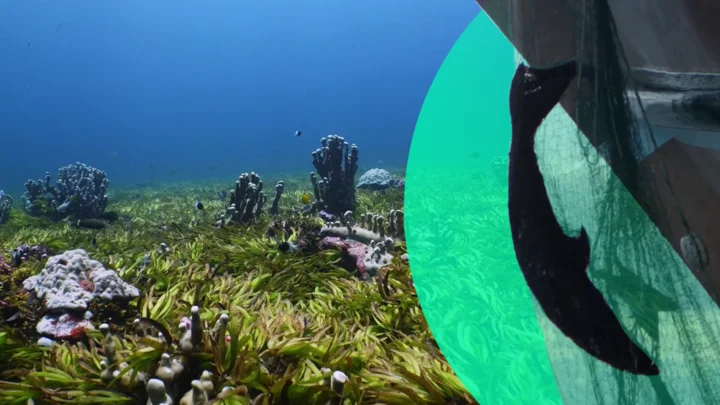
Sharks on the Brink: The Dire Situation at Saya de Malha Bank
In November 2022, a team of dedicated scientists embarked on a mission aboard a state-of-the-art research vessel, aiming to explore the underwater world of the Saya de Malha Bank. This remote marine reserve, located in the Indian Ocean between Mauritius and Seychelles, is a vital ecosystem, yet it faced a grim reality. During three weeks of thorough investigation, they were shocked to discover a worrisome absence of sharks—a cornerstone species vital for maintaining ecological balance.
This alarming deficit is attributed to extensive and unregulated fishing by fleets primarily from Taiwan, Sri Lanka, and Thailand. These ships, predominantly targeting tuna, are inadvertently or intentionally ensnaring sharks, leading to a drastic decline in their populations. As top predators, sharks play a critical role in regulating the health of seagrass meadows by controlling the populations of herbivores that might otherwise destroy this essential habitat.

The fishing practices used in these waters are concerning. Tuna longliners use heavy lines and specialized hooks designed to catch sharks, often leading to the brutal practice of finning—where the fins are cut off and the live sharks are discarded back into the sea, slowly sinking to their deaths. A strikingly high demand for shark fins creates this wasteful cycle; fins can sell for significantly more than the rest of the shark’s meat.
Evidence from investigations by organizations such as Greenpeace reveals the shocking scale of shark catches, with reports indicating that up to 50% of the catch may be sharks in certain fleets. Additionally, the surge in shark fin exports from Sri Lanka has quadrupled over the last decade, creating a dire forecast for shark populations both within local waters and beyond.

Although there is international legislation against shark finning, enforcement remains weak. Alarmingly, Sri Lankan authorities have apprehended numerous "dark vessels," which operate clandestinely, evading monitoring systems. On August 17, 2024, footage surfaced revealing the gruesome unloading of shark carcasses at a Sri Lankan port—an unsettling glimpse into the booming trade that threatens to annihilate local shark populations.
Why should we care about the potential extinction of sharks in the Saya de Malha Bank? As articulated by Ernest Hemingway, extinction resembles bankruptcy: it happens gradually, then suddenly. If we continue to deplete this precious marine resource, the ecological consequences may be catastrophic and irreversible. The importance of conserving sharks cannot be overstated, as their decline signals a grave imbalance in the ocean's complex web of life.
What are your thoughts on the situation facing sharks in the Saya de Malha Bank? Join the discussion in the comments below and share your perspective on how we can help protect these vital creatures of the sea.